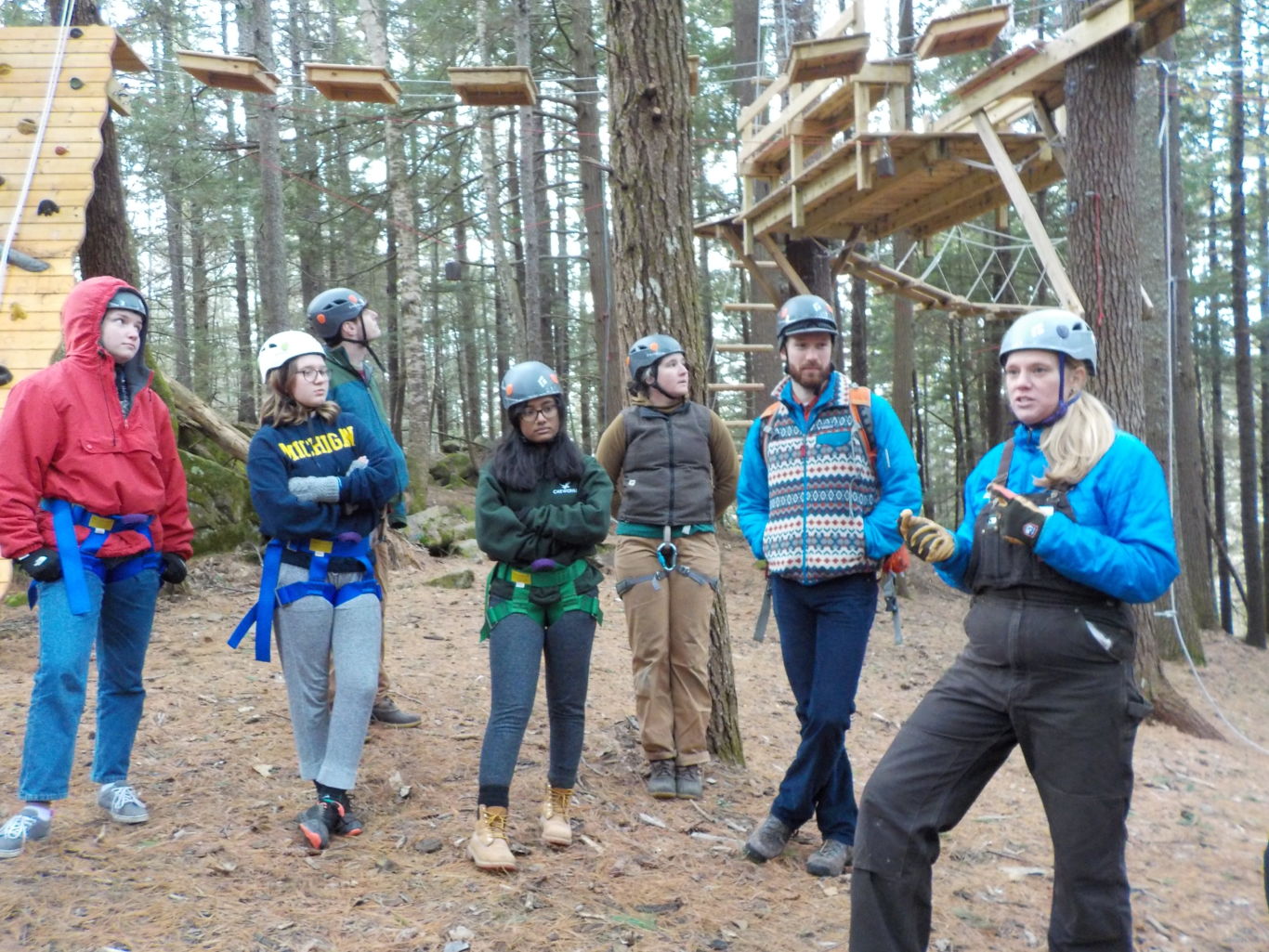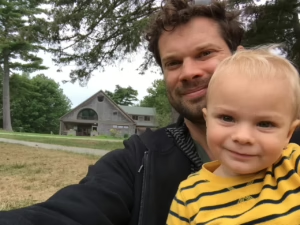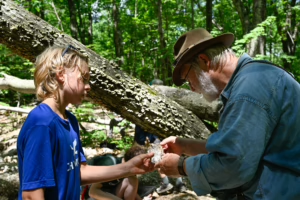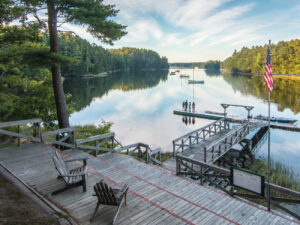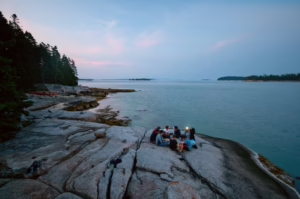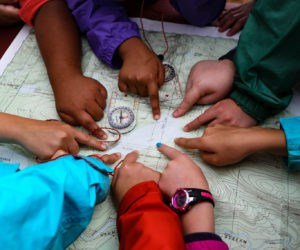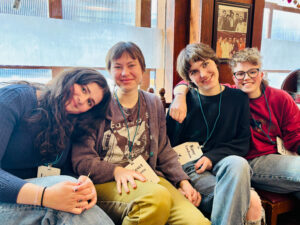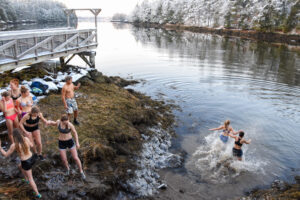Many enthusiastic educators, says Chewonki Team Development Coordinator Shelly Gibson, “tend to think of experiential education as synonymous with outdoor adventure.” Four days with 149 colleagues from around North America at the Independent Schools Experiential Education Network (ISEEN) Winter Institute reinforced for her that experiential education can happen anywhere, indoors and outdoors, on mountaintops and along city streets.
The theme of the 2019 ISEEN Winter Institute, hosted by the Riverdale Country School in the Bronx, New York City, was “Beyond Borders: Experiential Education Through the Lens of Equity and Justice.” It resonated deeply with Gibson, a member of Chewonki’s Diversity, Equity, and Inclusion Committee. She recognizes this approach to learning as a tool that could help make Chewonki welcoming to all kinds of people.
Gibson, who serves on the ISEEN board of directors, says, “The process ISEEN is going through is much like what Chewonki’s going through as we intentionally and thoughtfully approach work around inclusion and diversity. We are continuing to uncover the ways in which equity and justice overlap with our work as experiential educators. We are moving in the right direction, even though the conversations are often hard. This is challenging work, but we have to do it. Leaning into the discomfort is necessary for us to move forward.”
Gibson loves to teach and learn hands-on. She trains Chewonki staff and works with students and educators in and across all programs. Her wide view of what goes on here, love for the outdoors, and belief in the power of experiential education shape her work in the field, in classrooms, and on the Diversity, Equity, and Inclusion Committee.
Although there’s a common assumption among many Americans, especially white ones, that the concept of experiential education was “invented” by progressive educators several decades ago, Gibson notes that learning by doing with mentors is an ancient practice in many cultures around the world. She and other Winter Institute participants wrestled with, “How can we reframe the narrative in order to recognize that experiential education is not exclusive to this moment in history? We don’t want to ignore the fact that experiential education has gone on for centuries.”
Experiential education these days includes outdoor learning, farm and food education, place-based learning, sustainability initiatives, global education, community engagement, leadership development, and many other initiatives. Gibson discovered some less familiar forms during “EE in Action,” a day for ISEEN educators to step away from lectures and PowerPoint presentations and explore a wide variety of experiential education going on in New York City’s five boroughs. Interacting directly with the world around you “is the heart of our work,” she says. Gibson sampled verbatim theater, which involved taking exact language from news reports and live media, changing a variable like gender or race, and creating a theatrical performance. She calls the process “creative, fascinating. It challenged my thinking and I’d love to explore it more.”
Gibson anticipates exciting, sometimes uncomfortable days to come as Chewonki refines its program curricula to support greater inclusivity. She shares the perspective of Jay Stroud, director of the Commission on Independent Schools (part of the National Association of Independent Schools and Colleges), who wrote:
“Seeking equity and justice is never easy…Schools neither ‘excel’ nor ‘fail’ at embracing diversity. All schools seem to do both…However deeply committed you may be to equity and justice, you will never find an absolute resolution. Truly embracing diversity is accepting that the work will always be unfinished.”

